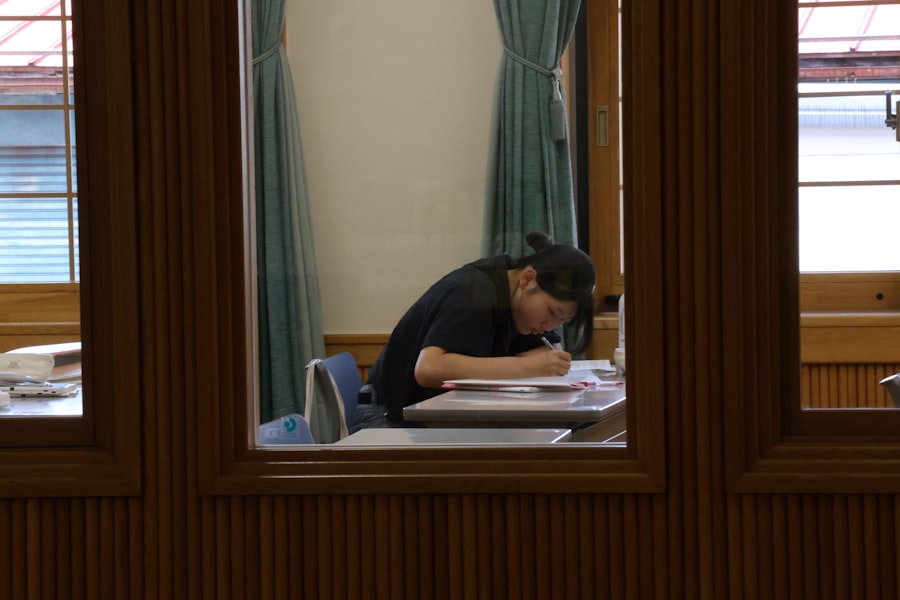New York City, a sprawling metropolis, is governed by a complex bureaucratic structure that can often seem daunting to residents and newcomers alike. The city’s government is divided into various departments, each responsible for specific functions that contribute to the overall management and operation of the city. This intricate web of agencies is designed to address the diverse needs of its population, from public safety and health to transportation and housing.
Understanding this structure is crucial for anyone looking to navigate the city’s services effectively. At the heart of NYC’s bureaucracy is the Mayor’s Office, which oversees numerous departments and agencies. Each department operates with a degree of autonomy but must align with the city’s broader goals and policies.
This interplay between the executive and legislative branches creates a dynamic environment where policies are formulated, debated, and implemented, often leading to a complex but necessary system of checks and balances.
Key Takeaways
- Understanding the bureaucratic structure of NYC is essential for navigating the city’s various departments and agencies.
- Navigating the Department of Buildings requires thorough knowledge of building codes and regulations to ensure compliance.
- Dealing with the Department of Transportation involves understanding traffic and parking regulations, as well as obtaining necessary permits for construction or street closures.
- Applying for permits and licenses in NYC can be a complex process, requiring attention to detail and adherence to specific requirements.
- Understanding zoning and land use regulations is crucial for development and construction projects in NYC.
Navigating the Department of Buildings
The Department of Buildings (DOB) is one of the most critical agencies in New York City, responsible for ensuring the safety and legality of construction and renovation projects. For anyone looking to undertake building work, understanding the DOB’s processes is essential. The agency oversees everything from issuing permits to conducting inspections, making it a key player in the construction landscape of the city.
Navigating this department requires familiarity with its regulations and procedures, which can be intricate and sometimes overwhelming. To successfully engage with the DOB, individuals must first familiarize themselves with the various types of permits required for different projects. Whether it’s a minor renovation or a major construction endeavor, knowing which permits are necessary can save time and prevent costly delays.
Additionally, applicants should be prepared for inspections at various stages of their projects, as compliance with building codes is strictly enforced. Engaging with the DOB early in the planning process can help streamline approvals and ensure that projects adhere to safety standards.
Dealing with the Department of Transportation

The Department of Transportation (DOT) plays a pivotal role in managing New York City’s vast transportation network, which includes roads, bridges, and public transit systems. For residents and businesses alike, understanding how to interact with the DOT is crucial for addressing transportation-related issues or initiating projects that may impact traffic flow. The agency is responsible for maintaining road safety, managing traffic signals, and overseeing public transportation initiatives, making it an essential component of urban life in NYC.
Navigating the DOT involves understanding its various programs and services. For instance, individuals may need to apply for street permits if they plan to conduct work that affects public roadways. Additionally, those interested in advocating for changes to traffic patterns or public transit services can engage with community boards or attend public meetings hosted by the DOT.
By actively participating in these processes, residents can voice their concerns and contribute to shaping the transportation landscape of their neighborhoods.
Applying for Permits and Licenses in NYC
| Permit/License Type | Application Process | Required Documents | Processing Time |
|---|---|---|---|
| Building Permit | Online or in-person application | Construction plans, permits, insurance | Varies based on project complexity |
| Business License | Online application through NYC.gov | Business information, tax ID, lease agreement | 2-6 weeks |
| Food Service Establishment Permit | Submit application to Health Department | Food safety plan, equipment list, floor plan | 4-6 weeks |
Applying for permits and licenses in New York City can be a multifaceted process that varies depending on the type of business or project involved. The city has established a comprehensive framework to ensure that all activities comply with local laws and regulations. This framework is designed not only to protect public safety but also to promote orderly development within the city.
Understanding this process is vital for anyone looking to start a business or undertake construction work. The first step in applying for permits or licenses typically involves determining which specific permits are required for a given project or business type. This may include zoning permits, health permits, or business licenses, each governed by different city agencies.
Applicants must gather necessary documentation, which may include plans, specifications, and proof of compliance with relevant regulations. Once submitted, applications are reviewed by the appropriate agency, which may require additional information or modifications before granting approval. Patience and attention to detail are essential during this process, as delays can occur if applications are incomplete or unclear.
Understanding Zoning and Land Use Regulations
Zoning and land use regulations are fundamental components of urban planning in New York City. These regulations dictate how land can be used within different neighborhoods, influencing everything from residential development to commercial enterprises. Understanding these rules is crucial for property owners, developers, and anyone interested in real estate transactions within the city.
Zoning laws help maintain order in urban development while balancing community needs and environmental considerations. In NYC, zoning regulations are categorized into various districts that define permissible uses for land. For example, residential zones may restrict commercial activities, while commercial zones may allow for mixed-use developments.
Property owners must familiarize themselves with these classifications to ensure compliance when planning new projects or renovations. Additionally, understanding the process for seeking zoning variances or special permits can be beneficial for those looking to deviate from standard regulations. Engaging with local community boards can also provide valuable insights into neighborhood-specific concerns related to zoning.
Navigating the Department of Health and Mental Hygiene

The Department of Health and Mental Hygiene (DOHMH) is responsible for safeguarding public health in New York City through various programs and initiatives. This agency oversees health regulations that impact restaurants, food vendors, healthcare facilities, and more. For business owners and residents alike, understanding how to navigate DOHMH’s requirements is essential for ensuring compliance with health standards and promoting community well-being.
For food establishments, obtaining a health permit from DOHMH is a critical step before opening for business. This process involves inspections to ensure that facilities meet sanitation standards and food safety regulations. Additionally, businesses must stay informed about ongoing health guidelines, especially during public health emergencies such as pandemics.
Engaging with DOHMH can also provide access to resources for mental health services, community health initiatives, and educational programs aimed at promoting healthier lifestyles among residents.
Dealing with the Department of Environmental Protection
The Department of Environmental Protection (DEP) plays a vital role in managing New York City’s water supply and environmental resources. This agency oversees water quality monitoring, wastewater treatment, and stormwater management, making it essential for maintaining public health and environmental sustainability. For residents and businesses alike, understanding how to interact with DEP is crucial for addressing environmental concerns or initiating projects that may impact local ecosystems.
Navigating DEP involves understanding its regulations regarding water usage and pollution control. Property owners may need to apply for permits related to construction projects that could affect waterways or drainage systems. Additionally, businesses must comply with regulations concerning waste disposal and emissions to minimize their environmental impact.
Engaging with DEP early in project planning can help identify potential environmental issues and ensure compliance with necessary regulations.
Understanding Tax and Finance Regulations in NYC
Taxation in New York City is complex due to its unique structure that includes both state and local taxes. The city’s tax system encompasses various levies such as property taxes, sales taxes, income taxes, and business taxes. For residents and business owners alike, understanding these regulations is essential for financial planning and compliance with local laws.
Navigating this intricate tax landscape requires familiarity with both city-specific rules and broader state tax policies. Property owners must be particularly aware of property tax assessments and exemptions available within NYUnderstanding how property values are assessed can help homeowners anticipate tax liabilities and explore potential savings through exemptions such as those available for senior citizens or veterans. Business owners should also familiarize themselves with sales tax regulations applicable to their operations, as compliance is crucial for avoiding penalties.
Engaging with the Department of Finance can provide valuable resources for navigating these complexities.
Navigating the Department of Housing Preservation and Development
The Department of Housing Preservation and Development (HPD) is dedicated to promoting affordable housing options throughout New York City while ensuring that existing housing stock remains safe and habitable. For tenants, landlords, and developers alike, understanding HPD’s role is essential for navigating housing-related issues effectively. The agency administers various programs aimed at preserving affordable housing while enforcing building codes and tenant protections.
For tenants facing housing challenges such as unsafe living conditions or eviction threats, HPD provides resources for reporting violations and seeking assistance. Landlords must also engage with HPD to ensure compliance with housing regulations and maintain their properties according to city standards. Developers interested in creating new housing units should familiarize themselves with HPD’s programs aimed at incentivizing affordable housing development through tax credits or financing options.
Dealing with the Department of Consumer and Worker Protection
The Department of Consumer and Worker Protection (DCWP) plays a crucial role in safeguarding consumer rights while ensuring fair labor practices within New York City. This agency oversees various regulations related to consumer protection laws, workplace safety standards, and wage enforcement policies. For both consumers and workers, understanding how to navigate DCWP’s resources is essential for addressing grievances or seeking assistance.
Consumers can turn to DCWP when facing issues such as deceptive business practices or unfair treatment by service providers. The agency provides avenues for filing complaints against businesses that violate consumer rights while offering educational resources on consumer protection laws. Workers can also benefit from DCWP’s enforcement of labor laws related to minimum wage requirements, overtime pay, and workplace safety standards.
Engaging with DCWP empowers individuals to advocate for their rights within both consumer markets and workplaces.
Tips for Streamlining the Bureaucratic Process in NYC
Navigating New York City’s bureaucratic landscape can be challenging; however, there are several strategies individuals can employ to streamline their interactions with various agencies effectively. First and foremost, thorough preparation is key—understanding specific requirements before initiating any application process can save time and reduce frustration later on. Gathering all necessary documentation ahead of time ensures that applications are complete upon submission.
Additionally, leveraging technology can significantly enhance efficiency when dealing with city agencies. Many departments offer online portals where individuals can submit applications or track their progress digitally. Utilizing these resources not only expedites processes but also provides transparency regarding application status.
Finally, engaging directly with agency representatives—whether through phone calls or in-person visits—can clarify any uncertainties while fostering positive relationships that may facilitate smoother interactions in the future. In conclusion, navigating New York City’s bureaucratic structure requires patience, diligence, and an understanding of various agencies’ roles within this complex system. By familiarizing themselves with departmental processes—from building permits to health regulations—residents can better advocate for their needs while contributing positively to their communities.
New York City’s reputation for being highly bureaucratic is a topic that has intrigued many, especially those who navigate its complex systems daily. The city’s intricate web of regulations and administrative procedures can often seem overwhelming to residents and newcomers alike. A related article that delves into the intricacies of urban planning and its impact on city life can be found on MyGeoQuest. This article provides insights into how urban planning decisions contribute to the bureaucratic nature of cities like New York. For more information, you can read the full article by visiting MyGeoQuest.
WATCH THIS! The Real Cost of NYC Living: Your Wallet, Sanity, and Subway Survival Skills
FAQs
What is bureaucracy?
Bureaucracy refers to a system of government or organization in which decisions are made by state officials rather than by elected representatives.
Why is NYC considered bureaucratic?
NYC is considered bureaucratic due to its complex and extensive system of rules, regulations, and procedures that govern various aspects of city life, including business operations, construction projects, and public services.
How does bureaucracy impact NYC residents?
Bureaucracy in NYC can lead to delays in obtaining permits, licenses, and approvals for various activities, as well as increased administrative burdens and red tape for individuals and businesses.
What are some examples of NYC bureaucracy in action?
Examples of NYC bureaucracy include the lengthy process for obtaining building permits, the complex regulations governing street vendor licenses, and the numerous forms and requirements for accessing public assistance programs.
What efforts are being made to address NYC’s bureaucratic challenges?
Efforts to address NYC’s bureaucratic challenges include initiatives to streamline permit processes, improve online services, and reduce unnecessary regulations through the city’s Office of Regulatory Review.
